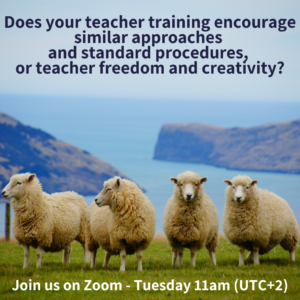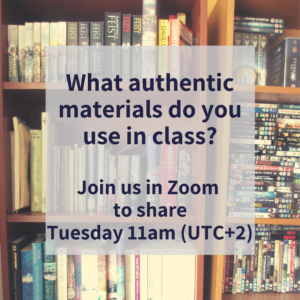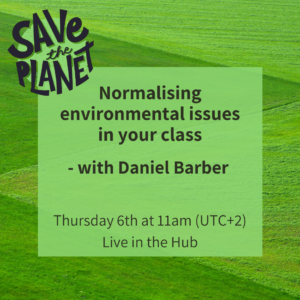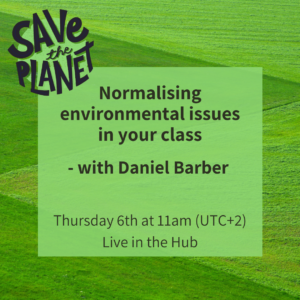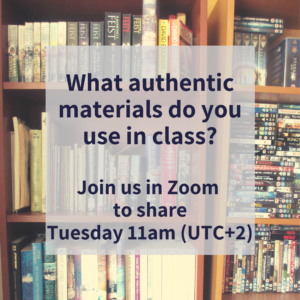What are we up to?
Studying for diplomas, applying (and getting) new jobs for next year, finishing training courses, doing examining tours, writing (boring) workbooks… “like tennis balls bouncing around in my head”.
Loving meeting teens on examining tours… restores faith in humanity; they’re so hopeful and full of dreams. They keenly feel the loss of this year.
And more on teens…
We went on to talk about teens and for many of them this year has been about studying and exams rather than music, sports, etc.
We talked about their growing autonomy as learners and noted that this was likely to be true only for a set of students, not necessarily all or indeed most. Teens are in that interesting time of fighting for independence and needing support. Some note how much time is wasted at school and they can learn more effectively and efficiently at home. We need to increase the value of the new skills sets they are learning, like flipped learning in operation, setting up independent study groups, finding resources, etc., etc. Good on (some of) them!
Podcasts and learner coaching
We asked about good podcasts for learners and the conversation moved on to talking about learner coaching.
We agreed that it all depends on the learner and we should try to personalise recommendations to match with learners’ interests. We tied this in with a conversation about learner training and there was some resistance to us as “coaches”; “everyone is a coach these days, it doesn’t mean anything.” But what are we? Teachers, facilitators, coaches? All of the above?
If we accept the role of coach in our classes, then we should make time in class to help students to reflect on the process and share what they’ve done. We appreciated that the number of resources available for lower levels is limited. YouTube channels and audio books were mentioned, as was “English Central” (on YouTube) where you can record your voice and compare with the original (sounds like fun!). And what of authentic resources? TED talks, BBC learning (not necessarily language learning specifically) and The Guardian all got honourable mentions as places to find authentic resources. Do teachers still make lessons around songs, articles, etc.? Some do, yes, maybe less than before. Someone shared a BBC Learning resource about the Suffragettes and another the beginning of a poem that students needed to complete, “When all this is over…” and record it for homework.
We wondered whether we will increasingly see courses being sold in different ways; a total number of hours for the course with x number of classroom hours. We talked about different course structures and what we can learn from them; e.g. pre-sessional university courses often have an INPUT – STUDY GROUPS (with task) – LESSON approach. Hours outside the classroom don’t necessarily need to have a teacher present but still constitute formal study; they can be collaborative tasks and can be timetabled elements of the course. We can also have more informal study groups and networks.
A move towards “translanguaging”?
Should we expect or even insist that students do the tasks in English? If, in the study groups, the students all share the same language, why wouldn’t they talk about it in their language first before creating the product in English. This started us thinking about translanguaging, interlanguaging, code-switching, etc. (Read more in Scott Thornbury’s Big questions in ELT.)
We thought about the difference between code-switching and translanguaging. We felt that the former had a negative connotation, we switch because we lack certain language as opposed to the latter which encourages access to all resources to solve a problem and help us learn using critical thinking skills and our world knowledge. Others thought that code-switching is a more natural approach and translanguaging is a strategy to be implemented. Should we do listening and reading comprehension tasks in students’ L1? Maybe one way would be for us to scaffold translanguaging in the classroom, with YLs in could start with “Can I speak in (L1), please?” We agreed that it would be interesting to understand the subject better and to think about a principled use of L1 in the classroom, to challenge the dominant and rigid “English Only” view. Using L1 can build trust, allow students to express themselves and then find the language they need. One for a focussed forum, we concluded!
What do teachers want in their coursebooks?
Apparently publishers understand that teachers want coursebooks based around the PPP model (presentation, practice and production) and we can still see it in operation with books for very young learners.
Task Based Learning is, we agreed, much harder to manage and Enquiry Based Learning needs high confidence from the teacher. EBL often starts with a topic and then participants share what they already know and what they want to know and then what they do end up learning.
Perhaps there could be a teachers’ guidebook about how to implement this kind of approach.
DIY materials – from tiny acorns…
Michelle shared Five Six Seven – a book she wrote for a soft CLIL approach where she taught science and maths through English, she’s looking to rewrite it!
As Fiona said in her webinar, lots of people start making materials and writing by addressing their own needs and then sharing them. Within the group there are people who write materials as their main source of income and others who use it to top up their income.
We mentioned Peachey Publications as a place to self-publish. And, does anyone know, is The Round still going?
Thanks to all for coming and for the conversions which were as stimulating and interesting as ever!
See you all soon.

